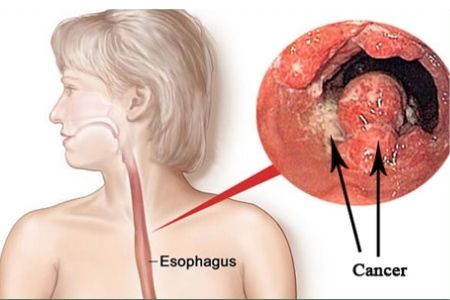What are oesophageal cancer symptoms ?
Difficulty swallowing is the first symptom people may notice. Other symptoms include :
Pain in your throat or back, behind your breastbone or between your shoulder blades.
Vomiting or coughing up blood.
Heartburn.
Hoarseness or chronic cough.
Unintentional weight loss.
Thank you for reading this post, don't forget to subscribe!
How quickly does oesophageal cancer progress (get worse) ?
Esophageal cancer typically grows very rapidly.
Your esophagus is very flexible and expands around the tumor as it grows.
This is why people often don’t have symptoms until the cancer has spread.
What’s the main cause of oesophageal cancer?
identified risk factors that increase the chance of developing esophageal cancer, including :
Tobacco use : This includes smoking and using smokeless tobacco.
Alcohol use : Chronic and/or heavy use of alcohol increases the risk of esophageal cancer.
Obesity : Being overweight or having obesity may cause inflammation in your esophagus that could become cancer.
Barrett’s esophagus and chronic acid reflux : Barrett’s esophagus is a change in the cells at the lower end of your esophagus that occurs from chronic untreated acid reflux.
Even without Barrett’s esophagus, people with long-term heartburn have a higher risk of esophageal cancer.
Human papillomavirus (HPV) : HPV is a common virus that can cause tissue changes in your vocal cords and mouth and on your hands, feet and genitals.
History of cancer : People who’ve had cancer of the neck or head have a greater risk for esophageal cancer.
Other disorders : Esophageal cancer is linked to some rare and/or inherited conditions.
One is achalasia, an uncommon disease that makes it hard for you to swallow.
Another disorder is tylosis, a rare, inherited disorder in which excess skin grows on the palms of your hands and the soles of your feet.
Occupational exposure to certain chemicals : People exposed to dry cleaning solvents over a long time are at higher risk of developing esophageal cancer.

